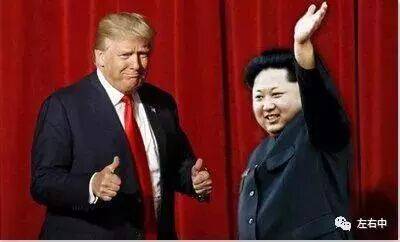32402
|
Phoenix International Think Tank International perspective·Political and business internal reference Click the blue words on the upper right to follow!  Composite: Trump (left) and Kim Jong-un. Picture/Network In the summer of 2012, international relations theorist Kenneth N. Waltz published an article titled "Why Iran Deserves the Bomb," in which he pointed out that a nuclear-armed Iran could become a counterweight to Israel and thus re-establish a favorable balance of power in the Middle East. Later that year, Walz argued that a combination of sanctions and diplomacy would not persuade Iran to give up its nuclear capabilities. He wrote in the September 2012 issue of Foreign Affairs magazine, “Absent the use of force, it is difficult to imagine how to prevent Iran from acquiring a nuclear weapon once it makes up its mind. ” Walz made two mistakes. First, he defended nuclear weapons as a source of regional or global stability, vastly underestimating the danger of them falling into the hands of terrorists or being used through miscalculation. Secondly, Walz did not foresee the success of the Iran nuclear negotiations. Walz died in 2013. If he were alive today, he would surely point out the weaknesses of Iran, the P5+1 (the five permanent members of the United Nations Security Council plus Germany) and the Joint Comprehensive Plan of Action (JCPOA) agreed by the European Union in 2015. But he must also admit that the JCPOA went further than he and many others thought possible, proving to those who advocated military action in particular the power of diplomacy. The JCPOA is a milestone in multilateralism. However, US President Trump called it "the stupidest deal ever" and predicted that it would "lead to nuclear annihilation." In fact, Trump disdains any form of multilateralism. Many analysts, including Stephen M. Walt of Harvard University, have pointed out that Trump’s remarks are completely nonsense and extremely exaggerated. But that didn’t stop Trump from refusing to “reevaluate” the JCPOA in October 2017. Trump's move means that it is up to the U.S. Congress to decide whether to restart nuclear sanctions against Iran. Currently, such sanctions violate the agreement. Even if Congress decides not to make changes in this regard, Trump's anti-Iran rhetoric and the plans of some Republican members of Congress are constraining the JCPOA and putting it in danger. The collapse of the JCPOA will bring huge risks to the Middle East and the world. Iran's resumption of its nuclear program will add a worrying dimension to the strategic confrontation between Iran and Saudi Arabia, as the Cold War between the two countries is about to heat up. Saudi Arabia's fearless Crown Prince Mohammed bin Salman, who has received Trump's full support, recently accused Iran of "acts of war" after Yemen fired missiles at Riyadh. With the United States already locked in a nuclear standoff with North Korea, it should never create similar risks in the Middle East. Fortunately, Germany, China, France, the United Kingdom, Russia, and the European Union have all pledged to defend the JCPOA and distance themselves from the Trump administration’s position. Trump’s foreign policy has created a lot of negative factors for nuclear proliferation. Take the U.S. invasion of Iraq in 2003 as an example. The U.S. pretext for launching the war was that Saddam Hussein had hidden weapons of mass destruction. After Saddam Hussein was overthrown, Iran and North Korea, two other members of what President George W. Bush called the axis of evil, decided that without nuclear weapons they would become prey for the United States. This conclusion was reinforced in 2011, when Libyan leader Muammar Gaddafi was overthrown with US support, having abandoned his nuclear program eight years earlier. Kim Jong Un came to power in North Korea just weeks after Gaddafi was summarily executed by rebels, and Gaddafi's fate clearly affected his approach to international relations. Trump’s threats of “fire and fury” did not bring Kim Jong Un to heel. Instead, they convinced the North Korean leader that his and the Kim dynasty’s survival depended on nuclear weapons. Suffocating sanctions alone cannot change his mind. It appears that Kim Jong-un is perfectly willing to subject the North Korean people to all forms of hardship as long as he retains power. Of course, there are important differences between North Korea and Iran. The most obvious difference is that Iran's nuclear program has not yet taken off, while North Korea has withdrawn from the Nuclear Non-Proliferation Treaty, possesses about 60 nuclear warheads, and is moving towards possessing strategic ballistic missiles equipped with nuclear warheads that can reach the United States. In short, an all-out military conflict with North Korea would create immediate global risks. Trump may have begun to realize that there is no conflict between pressuring North Korea and sitting down to negotiate with Kim Jong Un. In fact, grabbing both hands is the wisest solution. But to have a chance at diplomacy, Trump needs to abandon his inflammatory rhetoric and maximalist stances and work constructively with China. Chinese President Xi Jinping is expected to play a more proactive role in resolving international conflicts, especially those that directly affect China. An effective global leader must be able to extend an olive branch to adversaries when circumstances require it. Finding strategies that can reliably contain the Iranian threat is the only way to ensure that South Korea and Japan do not regrettably join the nuclear club. As Waltz observed, nuclear weapons have a tendency to spread. But that doesn’t mean we should abandon nuclear nonproliferation, let alone reduce its catastrophic consequences. International security depends on our ability to defend successful diplomatic efforts like the JCPOA, which are key to avoiding the proliferation of nuclear weapons and ending once and for all the vicious cycle of confrontation and polarization. (Editor's note: In the Chinese international relations academic circles, the more accepted translation is Waltz or Waltz, which is the Waltz referred to in the article) (Note: All opinions in this article represent only the author’s own and do not represent the position of Phoenix International Think Tank) Source: Left and right WeChat public account Author: Javier Solana, former EU High Representative for Foreign Affairs and Security Policy, former Secretary-General of NATO Click to read the original text and follow the official Weibo of Phoenix International Think Tank Keep abreast of the latest international political news 24 hours a day   Follow and reply with the following keywords You can view more exclusive internal references and information! Browse the exclusive "Daily Internal Reference" for the full version of the high-value Phoenix International Think Tank for free, please stay tuned and reply for the daily internal reference Think tank products Strategist | Marching First | Big Country and Small Freshman | Phoenix Strategy Think tank team research team Advisory Board: Wei Jianguo | Li Daokui | Wang Huiyao | Yan Xuetong Wang Yizhou | Jin Canrong | Tang Shiping | Wen Anli | Li Xiaopeng | Qiu Zhenhai Research team: Feng Yujun | Mao Siwei | Sun Youwen | Cai Xiongshan | Cao Lei | Chen Xiaoshuai | Chu Yin | Dong Mei | Huang Rihan | Hu Bo | Leng Shuai | Li Ke Aobo | Liu Yawei | Wang Jihong | Yu Chengzhi | Yu Wanli | Zhao Kejin | Zhu Zhonghua | Wang Jingwen | Xie Yuantao | Song Hongjun Cooperation matters Business cooperation | Reprint application | Whitelist about Us Think tank introduction | Think tank dynamics | Think tank | English More exciting things to come, so stay tuned!  Phoenix International Think Tank WeChat ID: ifengtank  Click on the upper right corner Share to Moments Only then can we pass the torch of thought! Long press the QR code You can get exclusive internal reference every day! Editor: Wang Rong |